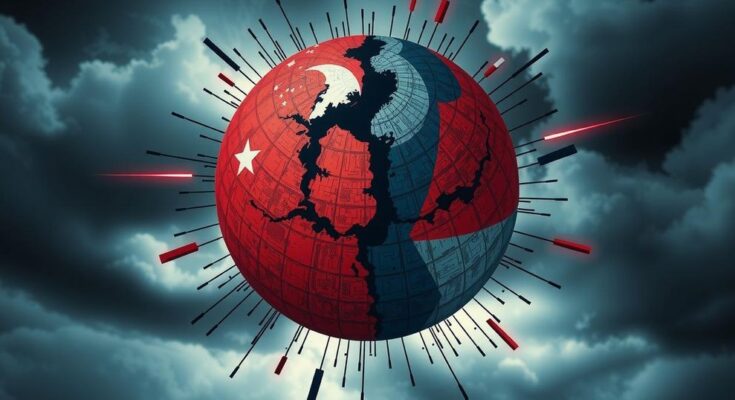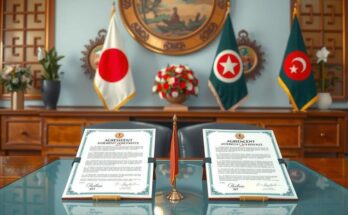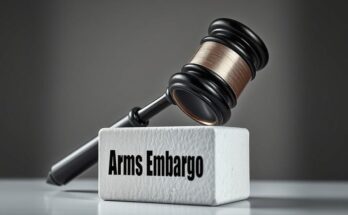Rwandan President Paul Kagame responded angrily to South African President Cyril Ramaphosa’s accusations that Rwanda supports M23 rebels in the DRC, leading to heightened diplomatic tensions. Following the deaths of South African soldiers, there were strong statements from both leaders regarding military roles and responsibilities in the conflict, which has deep historical roots in the region.
Tensions escalated between Rwandan President Paul Kagame and South African President Cyril Ramaphosa over accusations surrounding support for the M23 rebels in the Democratic Republic of Congo (DRC). Ramaphosa recently criticized Rwanda for allegedly backing these rebels amid an ongoing crisis, prompting Kagame to label Ramaphosa’s comments as “lying” and threaten possible confrontation.
Amid these strains, South Africa maintains military personnel in the DRC as part of a U.N. peacekeeping mission and a Southern African Development Community (SADC) initiative to support Congolese forces against the M23 rebels. However, the deaths of 13 South African soldiers during intensified fighting have added weight to Pretoria’s contentious accusations against Kigali.
In a written statement, Ramaphosa indicated that the M23 and a so-called “Rwandan Defense Force militia” were to blame for the fatalities, while Defense Minister Angie Motshekga issued a stern warning regarding further hostilities. This exchange has led to severe diplomatic tensions with Rwanda.
Kagame responded fiercely, asserting the Rwandan Defense Force is not a militia and signaling that Rwanda is ready for confrontation if provoked. He criticized South Africa for misrepresenting the nature of its military involvement in the region and rejected Ramaphosa’s claim that the fallen soldiers were peacekeepers, framing their actions in offensive terms.
South African Foreign Minister Ronald Lamola placed direct responsibility for the unrest on Rwanda’s support of the M23, referencing evidence from U.N. experts. He emphasized South Africa’s call for an immediate ceasefire during discussions held at an African Union meeting to address the ongoing conflict.
The eastern DRC, rich in minerals and bordering Rwanda, has experienced conflict for decades, with historical roots linked to the 1994 Rwandan genocide. Rwanda claims that armed groups in this region pose a security threat to its territory, while the Congolese government asserts that Rwanda seeks control over its mineral resources.
The diplomatic quarrel between Rwanda and South Africa revolves around the ongoing conflict in the eastern Democratic Republic of Congo (DRC). This conflict has persisted for over three decades, primarily driven by historical tensions from the Rwandan genocide, which precipitated the displacement of perpetrators into the DRC. The region’s wealth in minerals has also been a significant factor influencing the geopolitical dynamics at play, leading to allegations between the two countries regarding military support for rebel groups.
The conflict between South Africa and Rwanda has reached a boiling point, following serious accusations from both sides regarding military interference in the eastern DRC. While South Africa continues to advocate for peacekeeping and a ceasefire, Rwanda has firmly denied any wrongdoing and issued strong warnings in response. As this dispute unfolds, the implications for regional stability and peacekeeping efforts in the DRC remain uncertain, necessitating further diplomatic engagement.
Original Source: www.voanews.com




